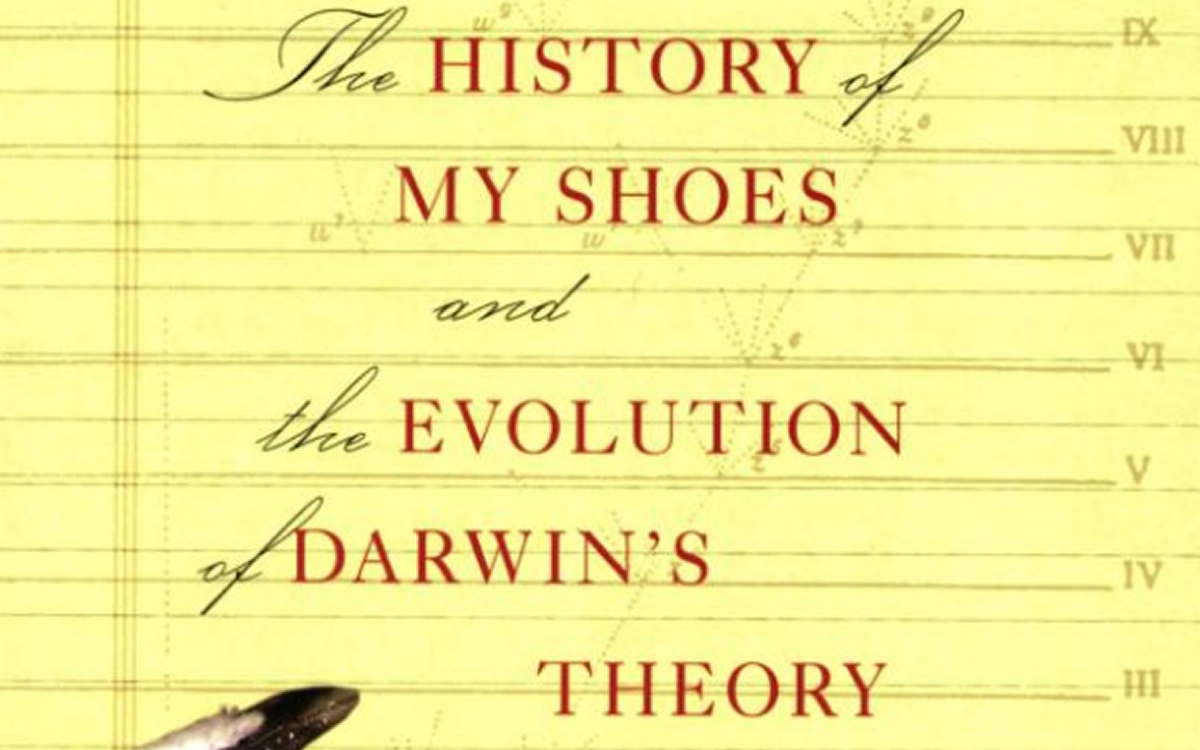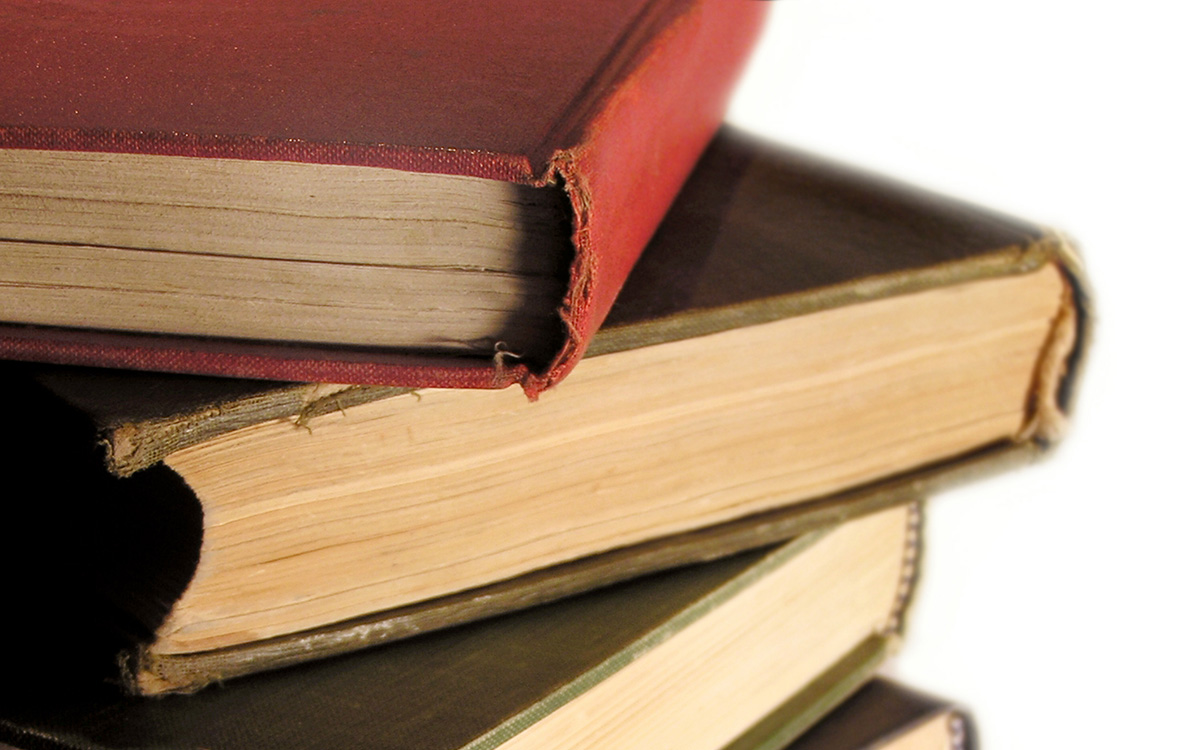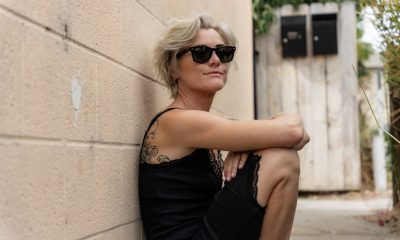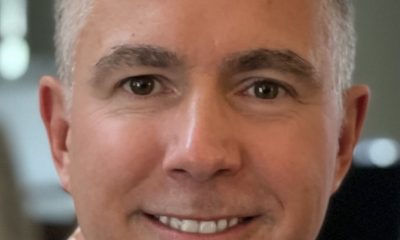Arts & Entertainment
Author Kenny Fries on being queer, disabled, and Jewish
How the three identities formed his rather irreverent take on life

(Editor’s Note: One in four people in America has a disability, according to the Center for Disease Control and Prevention. Queer and disabled people have long been a vital part of the LGBTQ community. Take two of the many queer history icons who were disabled: Michelangelo is believed to have been autistic. Marsha P. Johnson, who played a heroic role in the Stonewall Uprising, had physical and psychiatric disabilities. Today, Deaf/Blind fantasy writer Elsa Sjunneson, actor and bilateral amputee Eric Graise — Marvin in the “Queer as Folk” reboot — and Kathy Martinez, a blind, Latinx lesbian, who was Assistant Secretary of Labor for Disability Employment Policy for the Obama administration, are only a few of the numerous queer and disabled people in the LGBTQ community. Yet, the stories of this vital segment of the queer community have rarely been told. In its monthly, year-long series, “Queer, Crip and Here,” the Blade will tell some of these long un-heard stories.)
In 1991, when he was living in Provincetown, he agreed to be a model for a guide to “gay sex,” gay, disabled and Jewish author and poet Kenny Fries writes in his memoir “The History of My Shoes and the Evolution of Darwin’s Theory.”
Fries, 62, who’s just been awarded a Disability Futures Fellowship by the Ford Foundation, has been disabled since birth.
His medical records say that he has “congenital deformities of the lower extremities,” Fries said in an email interview with the Blade, “Basically, I was missing bones in my legs when born.”
Sometime later, Fries learned that the medical term for his disability is “fibular hemimelia.” “There is no known cause,” he added, “and it is nothing a pregnant mother does or doesn’t do that causes this.”
Back in 1991 in Provincetown, the local artist who was working on the gay sex guide wanted to make sure that it would correctly portray a disabled man having sex.
Fries was pleased when the artist showed him the pictures he’d taken of him and his partner in the modeling session. “I recognize the images of myself in both the photos and the drawing as very beautiful,” Fries writes.
But a week later, Fries’s feelings of pride were dissed. The guide’s art director didn’t like how the drawing turned out, Fries recalled the artist telling him. “‘He said that in the drawing the disability didn’t read. He wants me to cut off one of your legs,’” Fries writes.
Coming out wasn’t that difficult for Fries. Though, “I’m sure at times it felt difficult,” he said. “I think it was the combination of being both gay and disabled that posed the most challenges.”
If you’re disabled, you’re likely to run into ableism in the form of inaccessibility, pity, employment discrimination, discomfort, and fear. Perhaps, most hurtful, especially if you’re queer and disabled, is what Fries calls the myth of “the ideal body.” (This reporter is queer and disabled.)
Anyone with a body that is perceived as different is up against this myth, Fries said. “Everyone is affected by this myth, even straight white men. They just don’t know it as much as we do.”
Though he’s been disabled since he was born in Brooklyn, N.Y., and his disability is quite noticeable, Fries didn’t “come out” as disabled until he was in college.
Fries saw a psychologist after he began having panic attacks. “He did something not quite kosher,” Fries said, “making a deal with me that he’d come see the musical I was directing if I went to talk with Irv Zola, a disabled professor who taught at Brandeis, where I was an undergraduate.”
In those days, Zola was one of the very few disabled faculty at any college. “It was sheer luck that he was at mine,” Fries said.
At Zola’s suggestion, Fries got in touch with the Boston Self-Help Center, and, for a time, joined their peer support group. After grad school, Fries moved to San Francisco. There, he met Marilyn Golden, a disability rights movement leader. Meeting Golden, his first mentor, launched Fries’s disability rights journey.
Another important step for Fries in his “coming out” as disabled was when he took part in the Contemporary Chautauqua on Performance and Disability that was organized by Vicki Lewis at the Mark Taper Forum in Los Angeles in 1994. There, Fries met creative nonfiction and fiction writer Anne Finger, playwright Susan R. Nussbaum and other disabled writers. These writers became his “comrades in arms,” he said.
Golden and Nussbaum died earlier this year. It was “a great personal and community loss,” Fries said.
The apartment building where he grew up was like a “vertical high rise shtetl,” Fries said, when asked how being Jewish fit into his queer and disabled identity.
“An ex called me ‘the Nazi Trifecta,’” Fries said, “as Jews, the disabled and queers were persecuted and killed during the Nazi regime.”
Being queer, disabled, and Jewish – being triply “othered” has emphasized his “questioning,” Fries said, “especially of societal structures and institutions.”
Somehow, he believes, these three identities combined to form his rather irreverent take on things.
The writing bug bit Fries early on. “As a child, I was always thinking of plays,” Fries said, “and wrote some silly ones.”
Fries is one of our time’s most distinguished and important queer and disabled writers. He is the author of “Province of the Gods,” “The History of My Shoes and the Evolution of Darwin’s Theory” and “Body, Remember: A Memoir.” His books of poetry include “In the Gardens of Japan,” “Desert Walking” and “Anesthesia.”
If you’re visibly disabled, you’re stared at often by nondisabled people.
Fries has helped disabled people, queer and non-queer, to reclaim the stare. He edited the groundbreaking anthology “Staring Back: The Disability Experience from the Inside Out,” in which writers, including queer icon Adrienne Rich, reflect on their lived experience of being disabled.
“I didn’t realize Rich was disabled (she had rheumatoid arthritis) until I saw her using a cane at a reading in the Bay Area,” Fries said.
Fries lives with his husband, who is Canadian, in Berlin. They met when Fries was in Japan in 2005 and married in 2007.
“Living in cultures other than my own, as well as travel, has always been a foundation of my work,” Fries said.
Occasionally, Fries has encountered “direct” ableism in the queer community. Such as the time decades ago when he wasn’t allowed into a gay bar in Florence, Italy. Or the “very rare” sexual rejection by a nondisabled person. “This harkens back to the ideal body myth,” Fries said.
More insidious to Fries is the ableism of inaccessible queer spaces and events and the lack of inclusion of disabled people on queer-related panels at readings and events.
Then, there are the apps, Fries said. “How many disabled guys does one encounter on Grindr?” he said. “Even the profile questions asked show the default is not to think of physical difference.”
Fries came to Berlin to do research for the book he’s working on “Stumbling Over History: Disability and the Holocaust” and his video series “What Happened Here in the Summer of 1940?”
“The disabled were the first group to be mass murdered in gas chambers in Aktion T4, the Nazi program that killed 70,000 disabled persons,” Fries said.
“After T4 officially ended, 230,000 more disabled people were killed by gas,” Fries added, “as well as by other means, such as starvation, medication overdose and neglect.”
This is still a relatively unknown history to most people, even in Germany, Fries said.
Fries’s supply of energy is boundless. He has curated “Queering the Crip, Cripping the Queer,” the first international exhibit on queer/disability history, activism, and culture. It opened at the Schwules Museum Berlin on Sept. 1 and runs through the end of January 2023.
The exhibit includes the work of more than 20 contemporary queer/disabled artists.
A major theme of the exhibit is “‘the ideal body’,” Fries said, “how this fantasy has pervaded both queer and disability history and lives, and how queer/disabled artists have counteracted this.”
Many people know Audre Lorde as a queer, Black icon. But most don’t think of her as having a disability. Yet, Lorde, who had cancer, was disabled. She is included in the exhibit.
“Lorde was a very important figure for the Afro-German women’s movement,” Fries said.
Lorde wrote about having cancer in “The Cancer Journals.” She had an ahead-of-her- times view of disability, Fries said. “In an interview featured in the exhibit, she talks about a feminist book fair in London in 1984, which was held in an inaccessible space.”
It is important for all of us that such events be made available to disabled women, Lorde said in the interview, “and we should make sure they are announced in black women’s magazines.”
Lorde understood intersectionality before it became popular, Fries said.
For more information go to: kennyfries.com
Out & About
The Rare Book Fair is coming to D.C.
Over 35 antiquarian booksellers from across the country to attend

The Capital Rare Book Fair will bring more than 35 antiquarian booksellers from across the country to D.C. from Friday, May 3 to Sunday, May 5 at the historic University Club at 1135 16th St., N.W.
This year, the fair will take over two floors in the illustrious mansion on 16th Street and showcase thousands of beautiful, notable, and rare books, maps, and historic documents from around the globe. Exceptional examples that will be offered include leaf 27 of a 40-leaf xylographic Biblia pauperum, a picture Bible from 1465 for $85,000 from Bruce McKittrick Rare Books, among many other intriguing selections.
Tickets are $50 and more information is available on the event’s website.

Friday, April 19
Center Aging Friday Tea Time will be at 2 p.m. on Zoom. This is a social hour for older LGBTQ adults. Guests are encouraged to bring a beverage of choice. For more information, email [email protected].
Go Gay DC will host “Drag Pageant” at 8 p.m. at Freddie’s Beach Bar and Restaurant. Net proceeds from this event will benefit EQUALITY NoVa, the local nonprofit organization dedicated to advancing equality in Northern Virginia. Attendance is free and more details are available on Eventbrite.
Saturday, April 20
LGBTQ People of Color Support Group will be at 1 p.m. on Zoom. This peer support group is an outlet for LGBTQ People of Color to come together and talk about anything affecting them in a space that strives to be safe and judgment free. For more details, visit thedccenter.org/poc or facebook.com/centerpoc.
Go Gay DC will host “LGBTQ+ Brunch” at 11 a.m. at Freddie’s Beach Bar & Restaurant. This fun weekly event brings the DMV area LGBTQ community, including allies, together for delicious food and conversation. Attendance is free and more details are available on Eventbrite.
Sunday, April 21
Go Gay DC will host “LGBTQ+ Dinner” at 7 p.m. at Federico Ristorante Italiano. Attendance is free and more details are available on Eventbrite.
AfroCode DC will be at 4 p.m. at Decades DC. This event will be an experience of non-stop music, dancing, and good vibes and a crossover of genres and a fusion of cultures. Tickets cost $40 and can be purchased on Eventbrite.
Monday, April 22
Center Aging: Monday Coffee & Conversation will be at 10 a.m. on Zoom. This is a social hour for older LGBTQ adults. Guests are encouraged to bring a beverage of their choice. For more details, email [email protected].
Tuesday, April 23
Pride on the Patio Events will host “LGBTQ Social Mixer” at 5:30 p.m. at Showroom. Dress is casual, fancy, or comfortable. Guests are encouraged to bring their most authentic self to chat, laugh, and get a little crazy. Admission is free and more details are on Eventbrite.
Genderqueer DC will be at 7 p.m. on Zoom. This is a support group for people who identify outside of the gender binary. Whether you’re bigender, agender, genderfluid, or just know that you’re not 100% cis. For more details, visit genderqueerdc.org or Facebook.
Wednesday, April 24
Job Club will be at 6 p.m. on Zoom. This is a weekly job support program to help job entrants and seekers, including the long-term unemployed, improve self-confidence, motivation, resilience and productivity for effective job searches and networking — allowing participants to move away from being merely “applicants” toward being “candidates.” For more information, email [email protected] or visit [email protected].
Asexual and Aromantic Group will be at 7 p.m. on Zoom. This is a space where people who are questioning this aspect of their identity or those who identify as asexual and/or aromantic can come together, share stories and experiences, and discuss various topics. For more details, email [email protected].
Thursday, April 25
The DC Center’s Fresh Produce Program will be held all day at the DC Center for the LGBT Community. People will be informed on Wednesday at 5:00 pm if they are picked to receive a produce box. No proof of residency or income is required. For more information, email [email protected] or call 202-682-2245.
Virtual Yoga with Charles M. will be at 7 p.m. on Zoom. This is a free weekly class focusing on yoga, breath work, and meditation. For more details, visit the DC Center for the LGBT Community’s website.
Movies
After 25 years, a forgotten queer classic reemerges in 4K glory
Screwball rom-com ‘I Think I Do’ finds new appreciation

In 2024, with queer-themed entertainment available on demand via any number of streaming services, it’s sometimes easy to forget that such content was once very hard to find.
It wasn’t all that long ago, really. Even in the post-Stonewall ‘70s and ‘80s, movies or shows – especially those in the mainstream – that dared to feature queer characters, much less tell their stories, were branded from the outset as “controversial.” It has been a difficult, winding road to bring on-screen queer storytelling into the light of day – despite the outrage and protest from bigots that, depressingly, still continues to rear its ugly head against any effort to normalize queer existence in the wider culture.
There’s still a long way to go, of course, but it’s important to acknowledge how far we’ve come – and to recognize the efforts of those who have fought against the tide to pave the way. After all, progress doesn’t happen in a vacuum, and if not for the queer artists who have hustled to bring their projects to fruition over the years, we would still be getting queer-coded characters as comedy relief or tragic victims from an industry bent on protecting its bottom line by playing to the middle, instead of the (mostly) authentic queer-friendly narratives that grace our screens today.
The list of such queer storytellers includes names that have become familiar over the years, pioneers of the “Queer New Wave” of the ‘90s like Todd Haynes, Gus Van Sant, Gregg Araki, or Bruce LaBruce, whose work at various levels of the indie and “underground” queer cinema movement attracted enough attention – and, inevitably, notoriety – to make them known, at least by reputation, to most audiences within the community today.
But for every “Poison” or “The Living End” or “Hustler White,” there are dozens of other not-so-well-remembered queer films from the era; mostly screened at LGBTQ film festivals like LA’s Outfest or San Francisco’s Frameline, they might have experienced a flurry of interest and the occasional accolade, or even a brief commercial release on a handful of screens, before slipping away into fading memory. In the days before streaming, the options were limited for such titles; home video distribution was a costly proposition, especially when there was no guarantee of a built-in audience, so most of them disappeared into a kind of cinematic limbo – from which, thankfully, they are beginning to be rediscovered.
Consider, for instance, “I Think I Do,” the 1998 screwball romantic comedy by writer/director Brian Sloan that was screened last week – in a newly restored 4K print undertaken by Strand Releasing – in Brooklyn as the Closing Night Selection of NewFest’s “Queering the Canon” series. It’s a film that features the late trans actor and activist Alexis Arquette in a starring, pre-transition role, as well as now-mature gay heartthrob Tuc Watkins and out queer actor Guillermo Diaz in supporting turns, but for over two decades has been considered as little more than a footnote in the filmographies of these and the other performers in its ensemble cast. It deserves to be seen as much more than that, and thanks to a resurgence of interest in the queer cinema renaissance from younger film buffs in the community, it’s finally getting that chance.
Set among a circle of friends and classmates at Washington, D.C.’s George Washington University, it’s a comedic – yet heartfelt and nuanced – story of love left unrequited and unresolved between two roommates, openly gay Bob (Arquette) and seemingly straight Brendan (Christian Maelen), whose relationship in college comes to an ugly and humiliating end at a Valentine’s Day party before graduation. A few years later, the gang is reunited for the wedding of Carol (Luna Lauren Vélez) and Matt (Jamie Harrold), who have been a couple since the old days. Bob, now a TV writer engaged to a handsome soap opera star (Watkins), is the “maid” of honor, while old gal pals Beth (Maddie Corman) and Sarah (Marianne Hagan), show up to fill out the bridal party and pursue their own romantic interests. When another old friend, Eric (Diaz), shows up with Brendan unexpectedly in tow, it sparks a behind-the-scenes scenario for the events of the wedding, in which Bob is once again thrust into his old crush’s orbit and confronted with lingering feelings that might put his current romance into question – especially since the years between appear to have led Brendan to a new understanding about his own sexuality.
In many ways, it’s a film with the unmistakable stamp of its time and provenance, a low-budget affair shot at least partly under borderline “guerilla filmmaking” conditions and marked by a certain “collegiate” sensibility that results in more than a few instances of aggressively clever dialogue and a storytelling agenda that is perhaps a bit too heavily packed. Yet at the same time, these rough edges give it a raw, DIY quality that not only makes any perceived sloppiness forgivable, but provides a kind of “outsider” vibe that it wears like a badge of honor. Add to this a collection of likable performances – including Arquette, in a winning turn that gets us easily invested in the story, and Maelen, whose DeNiro-ish looks and barely concealed sensitivity make him swoon-worthy while cementing the palpable chemistry between them – and Sloan’s 25-year-old blend of classic Hollywood rom-com and raunchy ‘90s sex farce reveals itself to be a charming, wiser-than-expected piece of entertainment, with an admirable amount of compassion and empathy for even its most stereotypical characters – like Watkins’ soap star, a walking trope of vainglorious celebrity made more fully human than appearances would suggest by the actor’s honest, emotionally intelligent performance – that leaves no doubt its heart is in the right place.
Sloan, remarking about it today, confirms that his intention was always to make a movie that was more than just frothy fluff. “While the film seems like a glossy rom-com, I always intended an underlying message about the gay couple being seen as equals to the straight couple getting married,” he says. “ And the movie is also set in Washington to underline the point.”
He also feels a sense of gratitude for what he calls an “increased interest from millennials and Gen Z in these [classic queer indie] films, many of which they are surprised to hear about from that time, especially the comedies.” Indeed, it was a pair of screenings with Queer Cinema Archive that “garnered a lot of interest from their followers,” and “helped to convince my distributor to bring the film back” after being unavailable for almost 10 years.
Mostly, however, he says “I feel very lucky that I got to make this film at that time and be a part of that movement, which signaled a sea change in the way LGBTQ characters were portrayed on screen.”
Now, thanks to Strand’s new 4K restoration, which will be available for VOD streaming on Amazon and Apple starting April 19, his film is about to be accessible to perhaps a larger audience than ever before.
Hopefully, it will open the door for the reappearance of other iconic-but-obscure classics of its era and help make it possible for a whole new generation to discover them.
-

 Africa5 days ago
Africa5 days agoCongolese lawmaker introduces anti-homosexuality bill
-

 District of Columbia1 day ago
District of Columbia1 day agoReenactment of first gay rights picket at White House draws interest of tourists
-

 World5 days ago
World5 days agoOut in the World: LGBTQ news from Europe and Asia
-

 Arizona1 day ago
Arizona1 day agoAriz. governor vetoes anti-transgender, Ten Commandments bill












